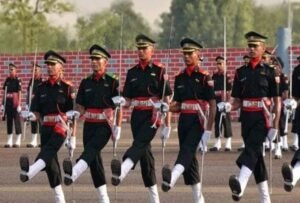For the majority of Indian youth, working in the administrative services is a dream career. Obtaining a position as an IAS officer entails not only a rich and high-paying income, but also a high level of social prestige as well as several perks and advantages. It allows you to make improvements in the country and assist the country by creating great social changes.
The Civil Services Exam is held every year by the Union Public Service Commission to select candidates for the IAS, IPS, and other central services. It is regarded as one of the most difficult competitive examinations in the country, yet passing it is not enough.
As the saying goes, “with power comes great responsibility,” and being an IAS officer is no exception. To justify their position as an IAS official, the candidate who is placed as an IAS officer must possess specific character attributes.
In this post, we shall explore the attributes that all applicants who aspire to be future nation-builders by becoming IAS officers must possess. These attributes are important for anyone who wishes to live a life that is exemplary and moral, not just IAS officers.
Integrity
Every leader must have integrity as a core quality. You can’t manage a profitable business if you don’t have integrity. A good Aspirants inspires with his ideals without compromise, refusing to make false promises or take shortcuts, preferring thoughts and action before personal gain, no matter how difficult the situation. Delivering on the stated commitments in an ethical and morally sound manner is required to reap the long-term benefits.
Honesty
The ability to be honest is one of the most important leadership skills for UPSC Aspirants. They are supposed to be honest in order to gain people’s trust and respect for their dependability. Furthermore, we admire aspirants who keep their promises and are accountable. As a result, the most valuable attribute for any civil service officer in general is honesty.
Active Listening
When it comes to UPSC Aspirants, active listening is a wonderful trait to have. Good aspirants pay close attention and are sincere when they listen to others. It aids them in comprehending others and their viewpoints. In the long run, active listening fosters trust and relationships. Good aspirants communicate with care, focusing on the individual and the message; they don’t interrupt and pay attention to what’s being said. And that is exactly what the world requires: leaders who pay attention to their constituents. This is a difficult talent to master; it necessitates self-awareness and humility in order to appreciate the opinions of others.
Innovative
Aspirants with brilliant innovative ideas are always found to be lacking in the will, commitment, and fear to act. Innovative leaders, on the other hand, are not among them. IAS Aspirants who are innovative are always open to new ideas and debates. They actively listen to everyone and encourage people to think beyond the box.
Self-Confidence
True aspirants have a lot of self-confidence; thus, they are aware of their abilities and leadership skills. They are confident in their abilities and leadership abilities. They are self-assured and self-esteemed, and they believe, above all, that they can make a difference. ‘You have to have faith in your ability and be tough enough to follow through,’ Rosalynn Carter correctly stated.
Self-confidence is essential for leaders because it allows them the courage to take chances, achieve goals, and soar to new heights.
Excellent communicator
To be an effective officer, you must have excellent communication skills. An effective leader understands how to communicate his message. They have good oratory skills and communicate effectively in order to complete their tasks. They are not harsh; instead, they use words and sentiments that are appropriate for the situation and allow people to express their feelings and ideas. They are aware of the importance of effective communication.
Visionary
A visionary aspirant sees the potential of a firm and is motivated by it. Visionary aspirants put in long hours for the greater good and keep up with the passage of time and change. A visionary leader ensures a vision for the future with perseverance and keeps everyone involved in the process. He is not afraid to take chances and make unusual judgments.
Decision Making Skills
Good leaders are determined and understand how to aid the company, its employees, stakeholders, and customers.
You’d never think of a leader who is unsure and ambiguous. Good leaders understand that their decisions have the potential to create or break a company. They think over a situation for a long time before making a decision. Before making any announcements, they gather the relevant information. They also do not believe rumours and instead investigate a scenario or a problem before making a choice.
Problem-Solving Capabilities
Management and delegation aren’t the primary aspects of leadership. The scope of leadership responsibilities for today’s business executives has expanded. Leaders must have problem-solving skills and an eye for assessing situations to make better decisions in order for a company to run properly. Problem-solving abilities are essential for good leadership.
Good leaders are born with the ability to solve challenges. They possess the ability to recognise and define difficulties. To resolve the difficulties, conduct an analysis, gather data, and communicate.
Self-motivated
The great leaders of business, industry, and finance, and the great artists, poets, musicians and writers all became great because they developed the power of self-motivation. ~Napoleon Hill
The capacity to motivate others is one of the most important leadership characteristics. When their employees’ morale is low, good leaders will motivate them and increase their morale. Even in dangerous conditions, they sail their boat with ease. They are self-motivated and set an example for others to follow.
Resilience
Leaders must be tough enough to fight, tender enough to cry, human enough to make mistakes, humble enough to admit them, strong enough to absorb the pain, and resilient enough to bounce back and keep on moving. ~Jesse Jackson
Before taking responsibility for others, one must first understand oneself. Resilient leaders are sensitive and know how to conduct themselves in a variety of situations, both good and bad.
Resilient leaders can maintain their energy level in the face of adversity and adjust to unexpected changes. They also conquer significant obstacles without causing harm to others or engaging in negative behaviour. Resilient leaders are high-performing leaders who bounce back quickly from hardship.
Self-Discipline
Great leaders always have self-discipline -without exception. ~John C. Maxwell
Leadership is about instilling discipline in others. Good leaders are self-disciplined and know how to manage their time effectively. They promote a disciplined culture among its employees. This is a trait that allows people to adjust to new situations with tenacity. When you practise self-discipline and lead by example, you inspire others to do the same.
Accountability
Accountability is the glue that ties commitment to the result. ~Bob Practor
Being a responsible leader is a difficult task. It signifies you’re willing to take responsibility for the pledges and obligations you’ve made. It entails being held accountable for your and your team’s actions and decisions. Leaders who are held accountable set clear goals and objectives. They are focused on the future while also admitting to making mistakes. When assistance is required, they ask for it and provide honest and constructive feedback.
Emotional Intelligence
Emotional intelligence is the ability to recognise, control, assess, and comprehend our own and others’ emotions. EI includes five components, according to psychologist Daniel Goleman:
- Self-awareness
- Self-regulation
- Empathy
- Social skills
- Motivation
Good leaders are self-aware, take considered decisions without getting carried away, and are self-aware. They are empathetic to others’ viewpoints without being cynical. They are self-motivated and have excellent social abilities, which enable them to form bonds and form healthy partnerships.
Passion
Passion is a prevalent leadership quality observed in the world’s most successful leaders. They are extremely committed to their aims and ambitions. They have a clear vision of what they want and work diligently to accomplish it. Their enthusiasm is contagious and inspirational. They are dedicated to their objectives and also assist others in accomplishing theirs.
Leaders that are passionate about what they do increase productivity and ensure that their colleagues buy into their vision. Passion aids in the instillation of motivation in employees and the achievement of the desired vision by leaders.
Tech-savvy
Our future success is directly proportional to our ability to understand, adapt, and integrate new technology into our work. ~Sukant Ratnakar
The world requires tech-savvy leaders to drive digital transformation. To stay in business, today’s leader must have a solid understanding of technology. The organization’s technological decisions must be led by a strategy, and the analogue experience must be transformed into a digital one. The majority of businesses in the world are already digital, and this trend will continue to rise dramatically in the future. As a result, it is clear that corporate executives need to improve their technology abilities in order to be more sustainable and make better decisions.
Agility in Learning
When faced with organisational change and uncertainty, agile aspirants are the most effective. In today’s world, we need leaders who can make decisions quickly and act quickly in times of crisis. We live in a fast-paced world where work trends change quickly. As a result, everyone has a limited amount of time to make informed decisions. Furthermore, techniques and policies that were effective in the past may no longer be effective now. The Covid-19 problem is one of the most notable examples. The crisis had altered the workplace culture, and executives had to devise new tactics to weather the storm.
Work will always be unpredictable and confusing in the future. New challenges will arise as a result of future occurrences. Organizations will only be able to prosper in the future if they are led by people who can make sense of unpredictability.
Sense of responsibility–
It is critical to have a sense of responsibility and accountability for one’s job in order to have a sense of influence. Only through having a sense of responsibility for company goals can a leader get the most out of his or her capabilities in a true sense. For this, he must motivate himself and inspire the desire to perform at his best. Only then would he be able to inspire his subordinates to achieve their full potential.
Empathy-
“Stepping into the shoes of others” is an old saying. This is critical since it is only then that fair judgement and objectivity are possible. A leader should be aware of his or her employees’ problems and complaints, as well as their needs and aspirations. This aids in the improvement of staff relations and personal interactions.
Every leader aspires to lead, inspire, and make a positive difference in the world. And it’s for this reason that you’ll need the correct leadership abilities to steer you in the right direction. Nobody can claim to possess all of these leadership attributes.
The route is paved by constant work and self-belief. As a result, leaders should be aware of and practise these leadership abilities in order to achieve long-term success.



